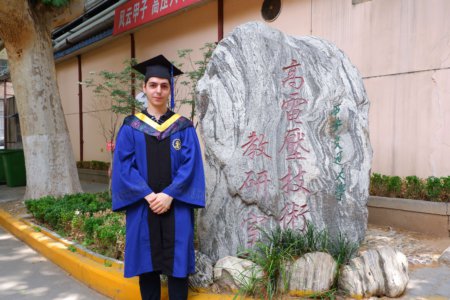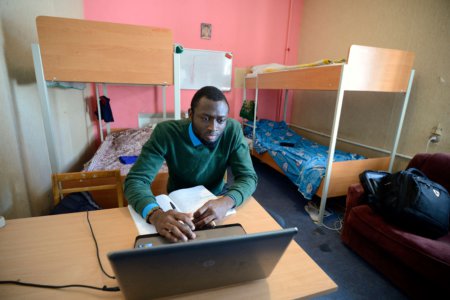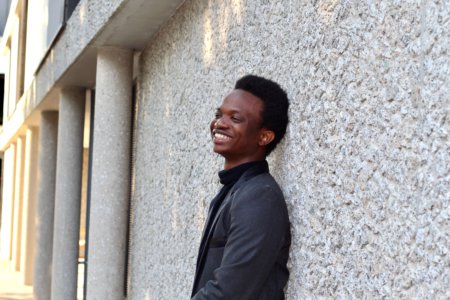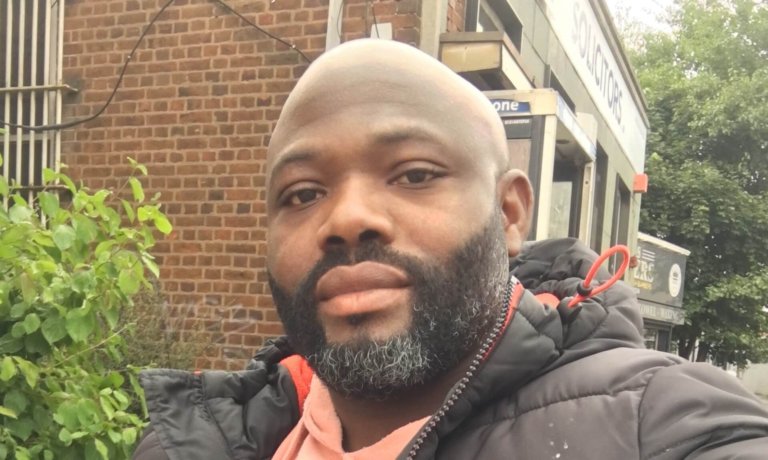
Dickson Tarnongo’s life story is one of resilience against all odds. At nine, the asylum seeker in the UK contracted polio — it wasn’t until 2014 that the country was no longer endemic of this disease — which left him wheelchair-bound. Years of discrimination followed — as of 2019, Nigeria had at least 25 million people with a disability, many of whom face human rights abuses such as stigma, violence, and lack of access to healthcare, housing, and education.
Still, Tarnongo was determined. He would go on to earn an undergraduate and postgraduate degree in law, before leading an active career as a barrister and activist.
View this post on Instagram
Today, he’s pursuing a PhD in Law at the University of Leicester and still put in time to volunteer with the British Red Cross, Migrant Voice, Coventry Refugee and Migrant Centre. Armed with a PhD, he hopes to use his skills to campaign for disability rights. His vision for the future is a society where people with disabilities are included in all areas of human endeavour.
We caught up with Tarnongo to learn more about his journey and his future plans:
Where does your interest in law stem from? Is there a personal backstory behind this?
My interest in law stems from the injustice I’ve experienced as a person with a disability in a nation that does not provide for persons with disabilities. Secondly, I want to become a lawyer that will fight corruption in my home country, Nigeria.
I believe that as a lawyer, I will contribute to making Nigeria corruption-free through the power of the law.
What made you choose to study this in the UK?
I chose to study my postgraduate degree in the UK for three reasons. First, the UK is known for its quality education and I wanted to be part of a society that promotes academic excellence.
Second, I wanted to have an international exposure and network with international scholars. Third, as a person with a disability, the UK Equality Act 2010 which promotes the rights of persons with disabilities was a motivation for me to identify myself with the UK educational system. This was so I wouldn’t be discriminated against on the basis of my disability.
I’ve been a disability rights activist for the past 20 years. This is because as a Nigerian citizen, I grew up to discover that disability rights are not known to the Nigerian legal system.

“I chose to study my postgraduate degree in the UK for three reasons. First, the UK is known for its quality education and I wanted to be part of a society that promotes academic excellence,” he says. Source: Paul Ellis/AFP
I’m determined to ensure that the rights of persons with disabilities are enshrined in the Nigerian legislation. I had personally faced discrimination because of my disability so the quest to eliminate this drives me to be deeply involves in the promotion of disability rights.
I was overwhelmed by how disability is perceived in Nigeria. Most authoritarians only make use of persons with disabilities as a front to misappropriate public funds which made me want to challenge such practices.
What are the financial challenges you face as an asylum seeker in the UK?
As a person with a disability, financial challenges go on and on until you are empowered enough to overcome them. It’s still work in progress for my quest to one day overcome my financial challenges and it’s a long walk to freedom. But, I made a promise to myself to not give up on all my struggles to live and actualise my dreams.
Regarding your PhD in Law, what made you choose to pursue this?
My quest in promoting disability rights in Nigeria and anywhere I found myself made me choose to pursue a PhD. My research is on disability rights and I hope to be able to present a thesis that will answer some challenging questions about the rights of persons with disabilities to set the stage for other similar research in the future.
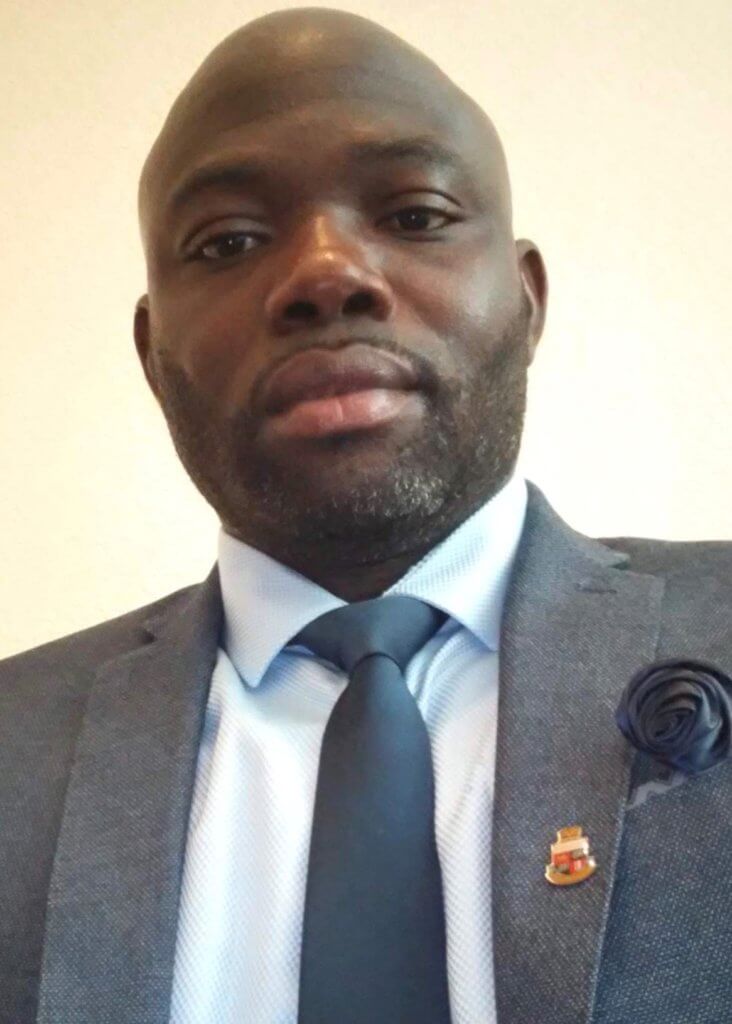
“My interest in law stems from the injustice I’ve experienced as a person with a disability in a nation that does not provide for persons with disabilities,” he says. Source: Dickson Tarnongo
Why choose to pursue this at the University of Leicester?
This is a good uni with quality scholars in my field of law and human rights. It’s a privilege to be researching my PhD here.
Can you share your most memorable class in the UK so far?
My postgraduate LLM class. The reason is that I was new in the UK and meeting with international scholars for the first time was very interesting. The school facilities were amazing and made schooling enjoyable with good memories to keep from it.
What about teachers during your studies? Who has stood out to you and how have they supported you?
I had the best lecturers at the University of Warwick. They were very supportive and made things very easy for me. I may not mention names but I can generally say my lectures were wonderful and I learned so much from them.
I think I’m a lucky man because at the University of Leicester, I have the best supervisors helping me succeed with my research work. I couldn’t have asked for more.
Walk us through your career path now. What should be done to help an asylum seeker in the UK get fair treamtnet?
My career path is to end up in academics as a lecturer at the uni. For asylum seekers, I will recommend more funding opportunities for those who are interested in pursuing education in the UK.
We need more unis to establish sanctuary scholarships for asylum seekers. Some unis have done this already but need more of such opportunities across the UK.
How can UK universities and businesses support persons with disabilities better?
From my experience so far, I think there is enough support. However, there is always room for improvement. I therefore stand by my stance that persons with disabilities in higher education should be adequately funded.
What plans do you have after graduating?
Remain a scholar on disability rights and promote scholarships on the rights of persons with disabilities. I will therefore like to teach at the University of Leicester.








